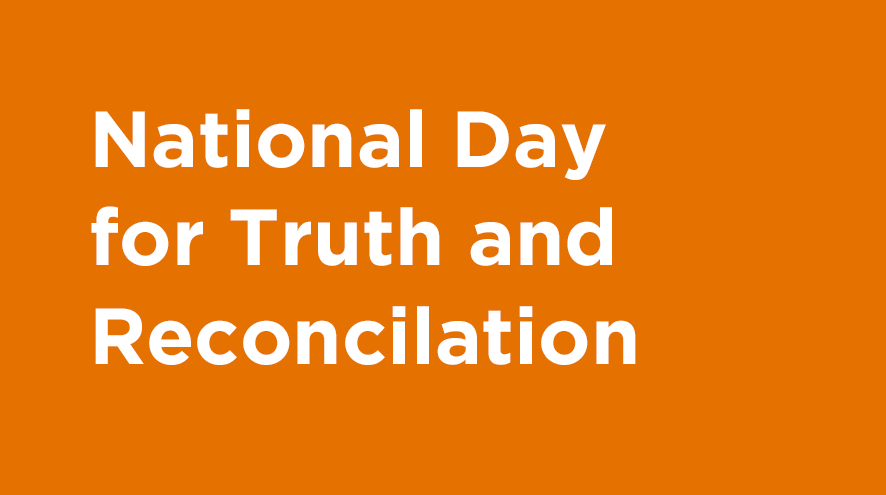September 30th is the National Day for Truth and Reconciliation
September 30th, marks the National Day for Truth and Reconciliation, honouring the lost children and the survivors of the residential school system, their families and communities. Read our statement on what the Alzheimer Society of Canada is doing on this day, and find links to related resources.

September 30th marks the National Day for Truth and Reconciliation. On this day, we honour the lost children and the survivors of the residential school system, their families and their communities.
The Alzheimer Society of Canada is recognizing the National Day for Truth and Reconciliation as a time for reflection, and to learn.
Please take time to learn more about and support the important work Indigenous people are doing in the dementia and brain health space. Here are links to just a few examples:
- The Native Women’s Association of Canada webpage on Aging and Dementia: nwac.ca/policy/aging-and-dementia
- Anishinaabek Dementia Care’s website: anishinaabekdementiacare.ca
- Indigenous Cognition and Aging Awareness Research Exchange website: i-caare.ca
- Canadian Consortium on Neurodegeneration in Aging: Team 18 - Issues in Dementia Care for Indigenous Populations website: ccnateam18.ca
- National Collaborating Centre for Indigenous Health website (search “dementia” on the website to find reports and research on this topic): nccih.ca
- Activities for National Truth and Reconciliation Day: Activities for National Day for Truth and Reconciliation - Canada.ca
- Culture Days for National Day of Truth and Reconciliation: National Day for Truth and Reconciliation | Culture Days
This day has been enacted as part of Truth and Reconciliation Commission Call to Action No. 80 “to honour Survivors, their families, and communities, and ensure that public commemoration of the history and legacy of residential schools remains a vital component of the reconciliation process.”
We commemorate and acknowledge this tragic and painful history, the intergenerational trauma and the continued harmful impact of Canada’s residential school legacy as we build towards reconciliation. We acknowledge Canada’s colonial past and continued systemic colonial influences that have eroded Indigenous communities and destroyed ways of life and connections to land.
The effects of colonization and the legacy of residential schools are significantly part of the social determinants of Indigenous health. When health is viewed through a holistic lens, we understand how the physical, intellectual, emotional and spiritual work together to achieve optimal wellness and balance.
Dementia in Indigenous communities is affected by the historical and continued impact of colonialism, and while in Canada there are few Indigenous words for dementia, its presence has become a growing concern as more people are living longer and, in some cases, getting dementia at younger ages.
As Canada works towards reconciliation for the effects of the residential school system, we also honor the resistance and resilience of Indigenous communities, and we stand by them to support Indigenous-led forms of healthy living and healthy aging.
